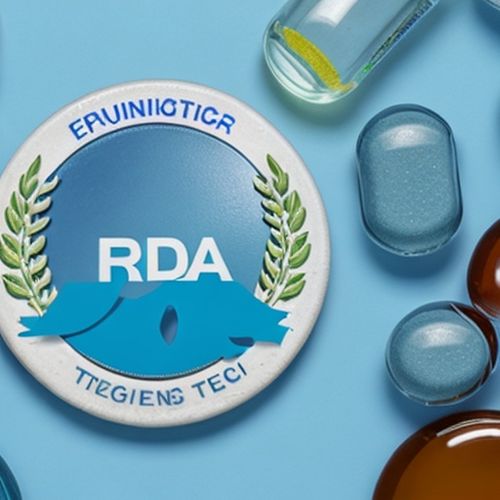In the ever-evolving landscape of pharmaceutical innovation, the pursuit of effective and convenient treatments for obesity has become a focal point for many drugmakers. Obesity, a global health epidemic, has spurred significant investment in research and development, with companies like Eli Lilly and Novo Nordisk achieving remarkable commercial success with their injectable treatments. Pfizer, a giant in the pharmaceutical industry, had been on the cusp of joining this race with its potential once-daily pill, danuglipron. However, recent events have cast a shadow over this endeavor, as Pfizer announced the discontinuation of danuglipron’s development before it could reach the crucial late-stage clinical testing phase.
The Promise of Danuglipron
Pfizer’s journey with danuglipron began with high hopes. The once-daily pill was designed to offer a convenient alternative to the injectable treatments currently dominating the obesity market. With obesity treatments emerging as one of the most promising and lucrative sectors in drug development, Pfizer saw an opportunity to revolutionize patient care by providing an easier-to-take option. Injectable treatments, while effective, pose challenges for many patients who prefer to avoid the discomfort and inconvenience of daily injections.
The potential market for such a pill is vast. Eli Lilly’s Zepbound, for instance, achieved nearly $5 billion in sales in its first full year on the market in 2024. Novo Nordisk’s Wegovy has also seen significant commercial success. However, these treatments come with their own set of challenges, including recent shortages and inconsistent insurance coverage, making them inaccessible to many patients. The need for a more convenient and affordable option has been a driving force behind Pfizer’s development efforts.
The Unexpected Hurdle
Despite the promising outlook, Pfizer’s path with danuglipron encountered a significant obstacle. During early-stage testing, a participant in one of the trials experienced a possible drug-induced liver injury. This adverse event, which resolved once the participant stopped taking the treatment, raised concerns about the drug’s safety profile. As a result, Pfizer decided to halt further studies of danuglipron, including its combination with other drugs for obesity treatment.
This decision marks a setback for Pfizer, which had planned to advance danuglipron into late-stage testing. Late-stage testing is typically the final phase before a company submits a potential treatment to government regulators for approval. The discontinuation of danuglipron means that Pfizer will have to refocus its efforts on other potential obesity treatments in earlier stages of development.
The Broader Implications
The discontinuation of danuglipron has broader implications for the pharmaceutical industry’s quest to develop an effective oral treatment for obesity. While Pfizer’s decision is a significant setback, it does not mark the end of the race. Other companies, such as Eli Lilly, are also exploring potential oral treatments and are expected to release data from their studies this year. The competition to develop the first effective once-daily pill for obesity remains fierce, with many eyes on the potential for a game-changing breakthrough.
The challenges faced by Pfizer highlight the inherent risks and uncertainties in drug development. Despite rigorous testing and high hopes, adverse events can derail even the most promising candidates. This reality underscores the importance of continued investment in research and development, as well as the need for robust safety monitoring throughout the clinical trial process.
The Financial Impact
From a financial perspective, Pfizer’s decision to halt danuglipron’s development has had immediate effects. Shares of Pfizer Inc. advanced 12 cents to $22.03 in morning trading on the day of the announcement. While this movement may seem minor, it reflects the market’s reaction to the news and the broader implications for Pfizer’s future in the obesity treatment space.
The discontinuation of danuglipron also raises questions about the financial viability of other potential treatments in Pfizer’s pipeline. With the obesity market becoming increasingly competitive, the company will need to carefully evaluate its remaining candidates to ensure they have the potential to succeed in a crowded field. The financial stakes are high, as the demand for effective and convenient obesity treatments continues to grow.
The Path Forward
Despite the setback with danuglipron, Pfizer remains committed to developing other potential obesity treatments. The company’s decision to continue exploring earlier-stage candidates reflects its long-term strategy and dedication to addressing the global obesity epidemic. While the road ahead may be fraught with challenges, Pfizer’s experience and resources position it well to contribute to future advancements in this critical area.
The journey of danuglipron serves as a reminder of the complexities and uncertainties inherent in pharmaceutical research. As Pfizer and other companies continue to pursue innovative solutions for obesity, the scientific community and patients alike will be watching closely. The need for effective, convenient, and affordable treatments remains urgent, and the race to develop the next breakthrough therapy is far from over.
A Renewed Commitment to Innovation
Pfizer’s decision to halt the development of danuglipron is a significant moment in the ongoing quest for better obesity treatments. While the discontinuation of this once-promising candidate is a setback, it also highlights the importance of rigorous safety testing and the inherent risks of drug development. As Pfizer redirects its efforts towards other potential treatments, the broader scientific community will continue to push the boundaries of what is possible in the fight against obesity.
The journey of danuglipron underscores the importance of perseverance and innovation in the face of challenges. While the path to developing a safe and effective once-daily pill for obesity may be long and fraught with obstacles, the potential rewards are immense. For millions of patients struggling with obesity, the promise of a convenient and accessible treatment remains a beacon of hope. As Pfizer and other companies continue to invest in research and development, the future of obesity treatment holds both promise and challenge. The legacy of danuglipron will serve as a reminder of the importance of scientific rigor and the relentless pursuit of better health outcomes for all.

By Samuel Cooper/Apr 16, 2025

By James Moore/Apr 16, 2025

By Sophia Lewis/Apr 16, 2025

By Michael Brown/Apr 16, 2025

By Christopher Harris/Apr 16, 2025

By Natalie Campbell/Apr 16, 2025

By George Bailey/Apr 16, 2025

By Thomas Roberts/Apr 16, 2025

By Natalie Campbell/Apr 16, 2025

By John Smith/Apr 16, 2025

By Emma Thompson/Apr 15, 2025

By Lily Simpson/Apr 15, 2025

By Noah Bell/Apr 15, 2025

By Victoria Gonzalez/Apr 15, 2025

By Benjamin Evans/Apr 15, 2025

By Joshua Howard/Apr 15, 2025

By Daniel Scott/Apr 15, 2025

By Amanda Phillips/Apr 15, 2025

By James Moore/Apr 15, 2025

By Grace Cox/Apr 15, 2025